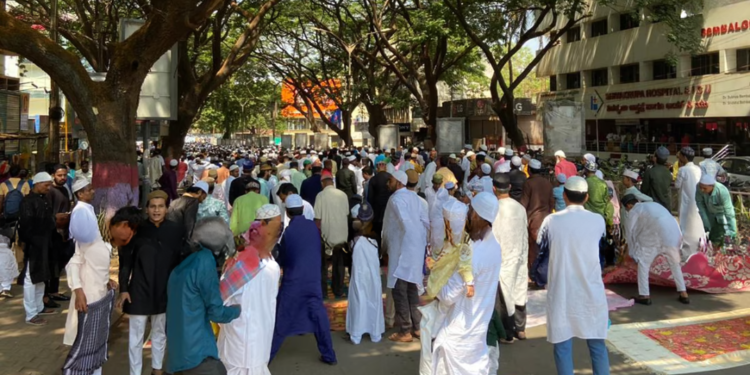The Madras High Court ruled on Monday that citizens’ right to conduct a religious procession is protected under Article 19(1)(b) and (d) of the Constitution, and no one can interfere with this right. This decision allowed a local Muslim group in Tirunelveli district, Tamil Nadu, to conduct a Muharram procession with music and drums despite opposition from another Muslim group.
In an order passed on July 15, Justice GR Swaminathan stated that when fundamental rights are threatened by fundamentalist elements, it is the State’s duty to address these forces.
“If one’s fundamental rights are under threat, the duty of the administration is to uphold the rights and put down those interfering with the exercise of the rights. Fundamental rights shall take precedence over fundamentalist forces,” the Court declared.
The Court thus granted the petition filed by Thameem Sindha Madar, who had approached the Court after a section of Muslim devotees in Ervadi town in Tirunelveli faced opposition to their traditional Muharram procession, which included drumming and music, known as the Santhanakoodu procession and Kuthirai Pancha.
The opposing group, Thowheed Jamath, argued that these rituals had a corrupting influence on devotees and that Islam should be practiced in its pure form, free from such rituals. When the petitioner approached district authorities, they failed to restrain the opposing group and instead asked the petitioners to refrain from their traditional practices.
Although district and State authorities cited potential law and order disruptions, the Court criticized this reasoning, stating that the authorities had taken the easy route by allowing one group to interfere with another’s religious rights.
“The petitioner and his associates have the fundamental right to conduct their religious procession. This right stands protected by Article 19(1)(b) and (d) of the Constitution of India. This right has been exercised by the petitioner’s forefathers over centuries. It is not open to Thowheed Jamath to dictate to the petitioner’s group as to how they should conduct the festival. Thowheed Jamath has no right to prevent the petitioner’s group from going on a religious procession. It is unfortunate that the District Administration chose to succumb to the threats held out by the fundamentalist elements….If the District Administration is to take the easy and lazy option of prohibiting the exercise of the right by citing law and order issues, it would betray their impotence,” Justice Swaminathan said.
The judge allowed the petition and directed the local police to ensure adequate safety arrangements for the procession. He further stated that those who opposed the Santhanakoodu procession and Kuthirai Pancha should abstain from participating and stay indoors.
Advocate G Prabhu Rajadurai appeared for the petitioner.
Special Government Pleader K Balasubramani, Government Advocate Albert James, Senior Counsel T Lajapathi Roy, and advocates T Seeni Syed Amma and S Balaji appeared for the respondents.

















